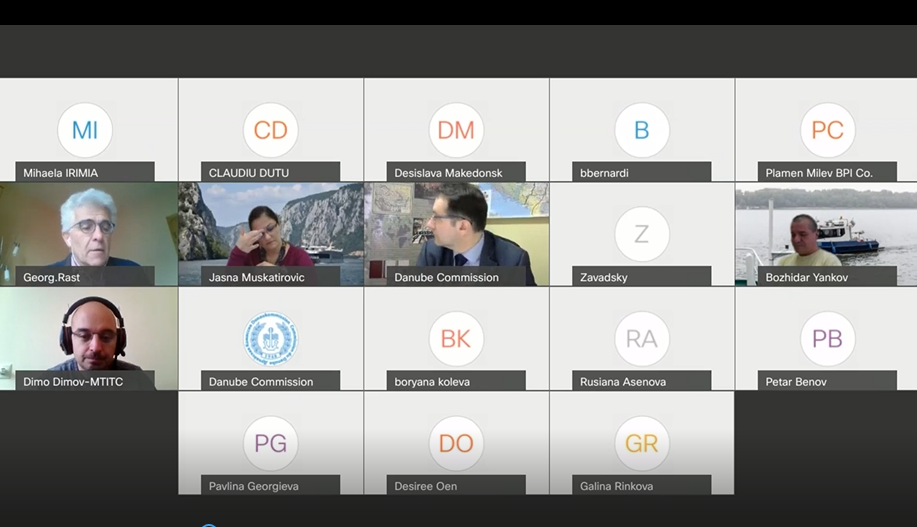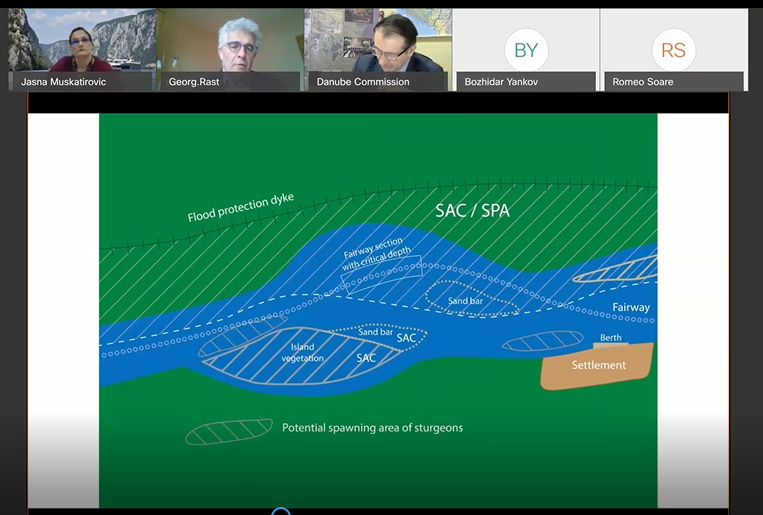The Danube Commission hosted the 6th METEET workshop/webinar for Bulgaria, 26 – 27 November 2020
The 6th METEET workshop was held as a live webinar for Bulgaria on 26th – 27th November 2020. The Secretariat of the Danube Commission (DC) provided the communication tool (WebEx) as the meeting’s host. The concept was refreshed in the policy section of transport and environmental protection in cooperation with trainers. The project proposals and case studies remain the same as the virtual project adapted to the Danube conditions and actual projects in Bulgaria.

The webinar was attended by about 25 participants from different governmental institutions and other partnerships. The webinar was held in difficult conditions of the COVID-19 pandemic that influenced the presence of individual experts. The representatives from Romania’s governmental institutions, involved in the FAST Danube Project, were guests to the webinar that gives the workshops partly cross-border dimension.
Discussion led to the conclusion that the EAEMDR – Executive Agency “Exploration and Maintenance of the Danube River” (a public authority within the Ministry of Transport) is a key institution responsible for fairway maintenance, rehabilitation and upgrade.

Besides the joint project FAST Danube, the webinar converged around Bulgaria’s significant contribution to the FRMMP (Master Plan for Rehabilitation and Maintenance of the Fairway on the Danube River and its Tributaries), especially in the last two years. The focus was on extremely critical sectors Belene and Vardim on the Bulgarian stretch of the Danube where dredging activities had prolonged the navigation period and contributed to the achievement of at least a certain level of navigability. The whole Bulgarian stretch of the Danube river is classified as a Heavily Modified Water Body. According to the last edition of the Danube River Basin Management, ecological status and ecological potential of the Bulgarian Danube were determined as moderate. Cooperation with the sector and organizations in the field of the environment was positively assessed, although certain inconsistencies in the application of the Habitats Directive (92/43 / EC) were noted. It is essential to strengthen collaborative relationships with the stakeholders, when it comes to the river works project in the scope of planning, design and implementation phase.
